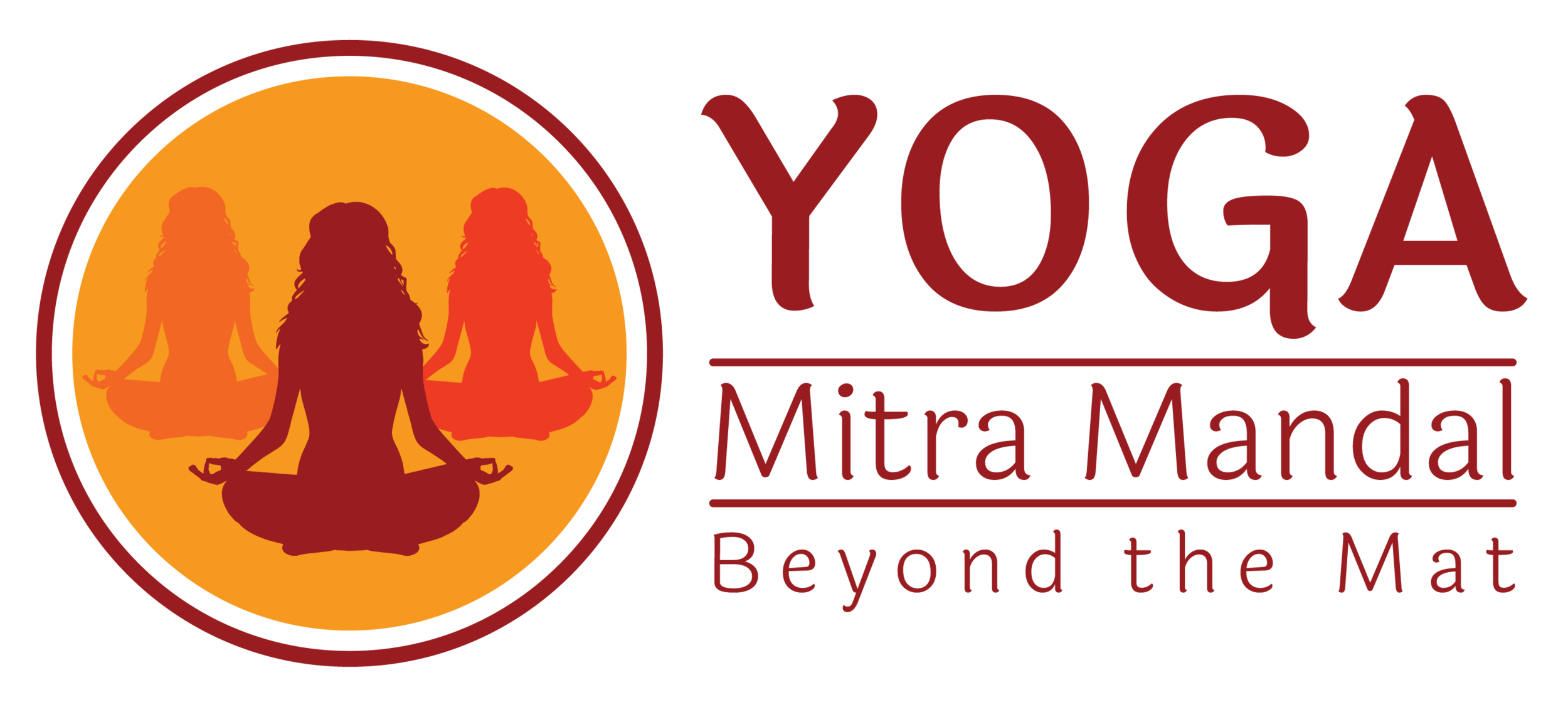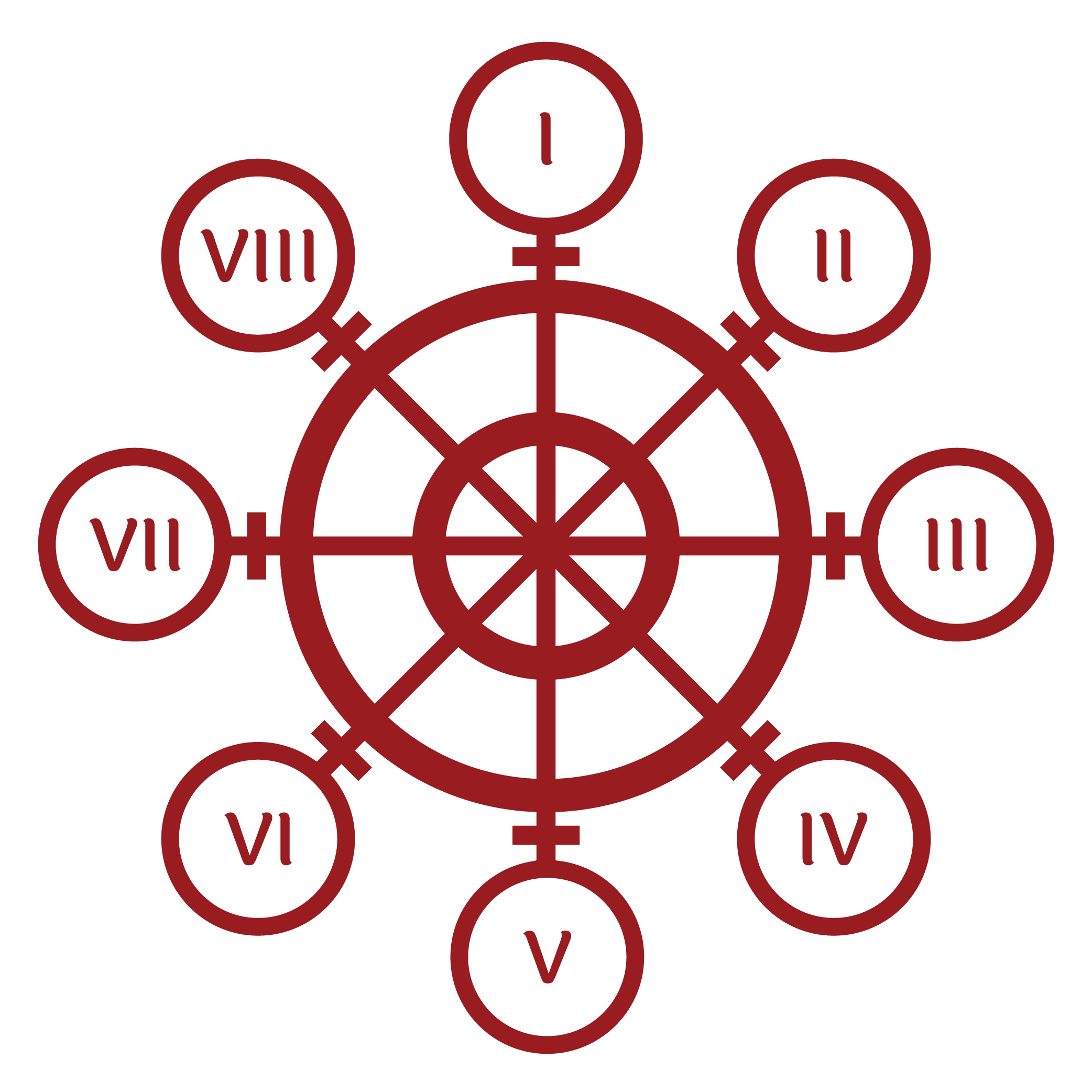What is Raja Yoga?
The great sage Patanjali developed 196 sutras (aphorisms) about Yoga practice, philosophy and discipline around the 6th century, BCE. Raja Yoga’s systematic practices and attitudes aim to reach the highest levels of meditation and spiritual experience.
Patanjali’s eightfold path of yoga consists of:
1. *Yama: Five social codes of conduct.
2. *Niyama: Five principles for internal harmony.
Important in the yogic lifestyle, we defer their detailed study and practice until a later stage.
3. Asana: Physical postures help relieve tension of the physical body, improve flexibility and balance, strengthen and tone the body and confer innumerable health benefits. Yoga helps in managing diseases including diabetes, arthritis, and heart disease.
4. Pranayama: Breathing techniques connect the body, mind and spirit. At Yoga MM, a wide range of practices bring stress relief, balance neurological reflexes, improve oxygenation, and profoundly impact all dimensions of the human personality.
5. Pratyahara: This first step of meditation is the withdrawal of the senses. We offer many techniques which include Body Stillness (Kaya Sthairyam) essential to disciplined practice, Yoga Nidra. (a deeply relaxing, yet easy guided practice developed by Swami Satyananda) which prepares the body and mind for meditation
6. Dharana: The focus and steadiness of the mind. We introduce a wide range of techniques to achieve one-pointedness - such as Kaya Stahairyam (body stillness); Chakra meditation and Antar Mouna (inner silence) developed by Swami Satyananda.
7. Dhyana: True meditation. It is important to note that true meditation rarely occurs spontaneously.
8. Samadhi: Bliss; union with a higher consciousness. Samadhi cannot be practiced; it spontaneously flows from intense practice of meditation over time.
*Yama, the 5 principles of social conduct are:
Ahimsa (nonviolence), Satya (truthfulness), Asteya (non-stealing), Brahmacharya (sensual balance; celibacy), and Aparigraha (non-possessiveness).
*Niyama,the 5 principles for internal harmony are:
Shaucha (cleanliness of body and mind), Santosha (contentment), Tapas (self-discipline, asceticism), Swadhyaya (self-study; study of spiritual literature), Ishwar Pranidhana (surrender to a higher consciousness).
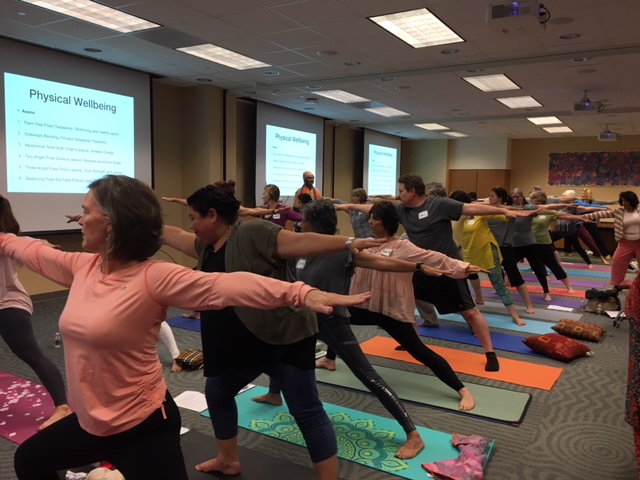

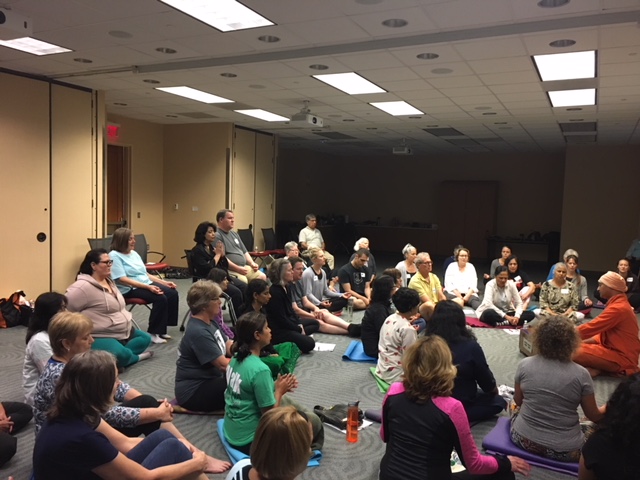
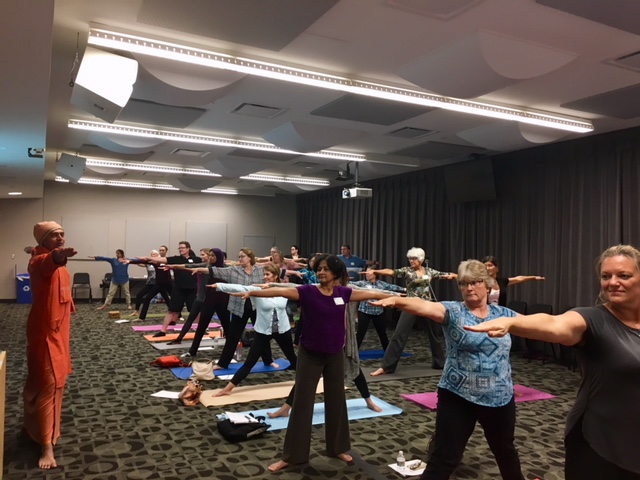
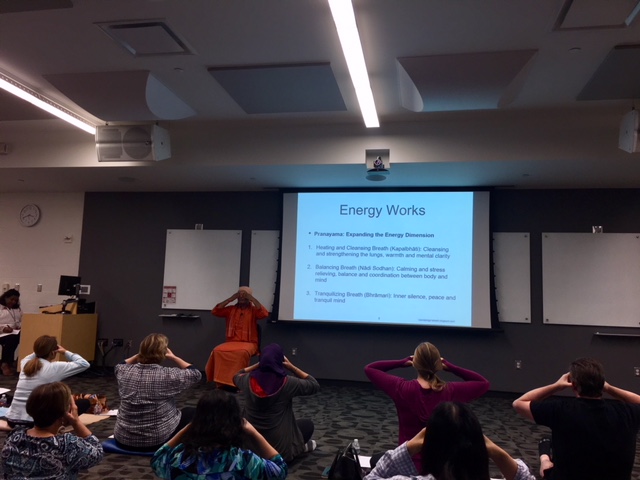
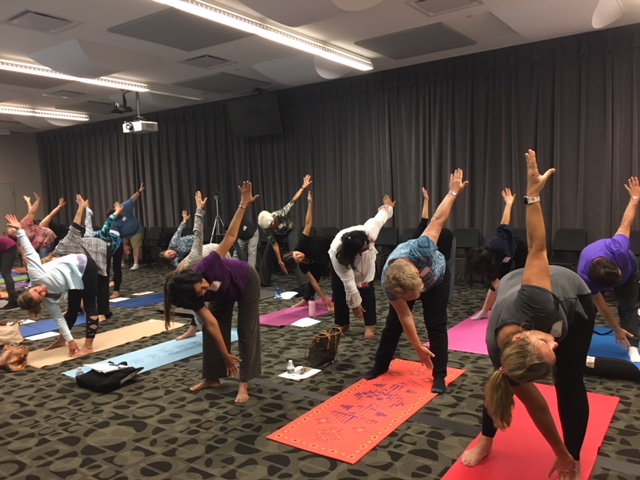

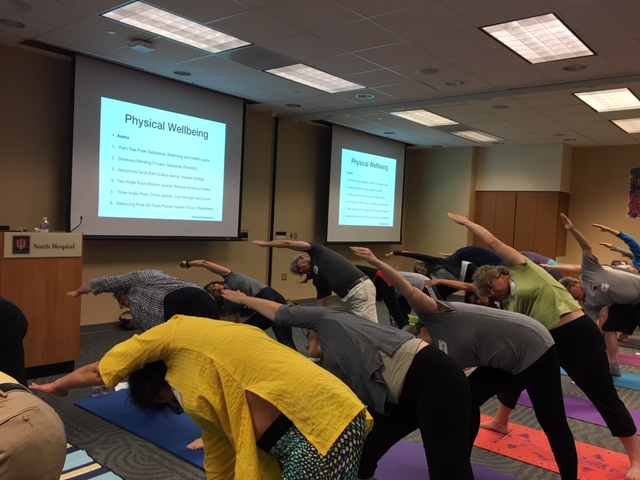

Gallery of images exemplifying the practices of Raja Yoga at one of our seminars.
